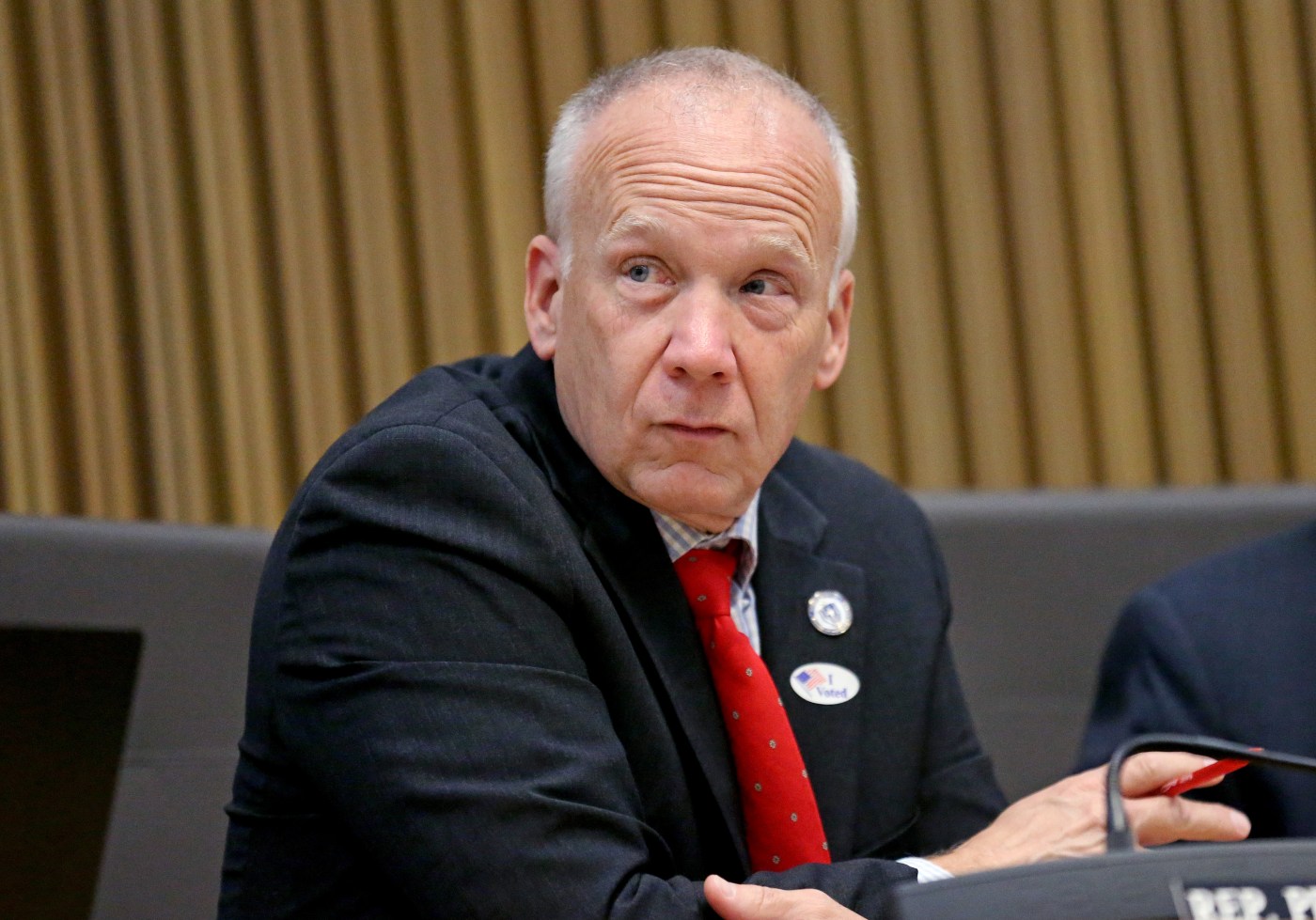
Pols & Politics: Mass. senator eyeing legal fund to finance shelter-related record challenges
A Central Massachusetts senator wants to create a legal fund to help pay the costs of obtaining emergency shelter-related records, some of which he argues are being withheld or improperly redacted by state officials.
Over the past year, officials working for Gov. Maura Healey have released troves of documents detailing the cost and intricacies of the state-run shelter network housing local families and newly-arrived migrants. But key details are often kept hidden in the name of public safety.
State Sen. Peter Durant, a Republican from Spencer, said he has been “getting stonewalled a lot” while searching for the detailed costs of housing thousands of families in an expansive shelter network propped up by sometimes costly hotels.
The first-term senator and former representative said residents “have a right to understand how these dollars are being spent.”
“We’re hoping for a full accounting of what this costs, and not just what the hotels are costing, but what the ancillary services are costing. How much are we spending on all the meals? Where are they going? How much on the EBT cards? How are they being spent?” he said.
The Healey administration is statutorily required to release a report every two weeks on the emergency shelter system, which was set up under the decades-old right-to-shelter law that guarantees temporary housing to families with children and pregnant women.
The most recent report said state officials spent $819 million on the shelter system and associated services through June of fiscal year 2024. That includes $292 million to pay shelter providers and $26 million for overflow sites and clinical assessment sites.
The document does not go into specific details but contracts released through public records requests do, including dozens of agreements provided to the Herald earlier this year that showed nightly rates for hotel rooms could run nearly $300.
Related Articles
Pols & Politics: Three Massachusetts House races that offer glimmers of competition
Pols & Politics: Beacon Hill’s power of incumbency put to the test in this Mass. Senate race
Pols & Politics: Beacon Hill faces calls for culture change after chaotic end of session
Pols & Politics: Republican John Deaton finds friends in the Winklevoss twins
Pols & Politics: The summer of Democrats’ discontent with Biden is far from over
Many pieces of information, like the names of certain vendors or locations of hotels, are routinely redacted in documents released by the Healey administration.
A spokesperson for Healey said records are partially redacted or withheld under “allowable exemptions” to protect the safety and privacy of families and providers, some of who have already been the subject of hate and harassment.
“Hate groups have repeatedly located shelters and used this information to threaten, intimidate, and terrorize shelter residents and staff,” the spokesperson said in a statement. “Decades of established legal precedent confirms the responsibility to protect information that would reveal shelter locations, sensitive information about shelter recipients, or other matters that would place the safety and privacy of families and providers at risk.”
The push for documents comes as Massachusetts is expected to spend over $1 billion on the emergency shelter system this fiscal year and in each of the next few fiscal years, a massive spend that Democrats on Beacon Hill expect will create more budget headaches.
Durant wants more details on a string of “serious incidents” at shelters across the state and information on people in shelters who are “breaking the law.” Details on the incidents have been withheld by the state’s housing department, which partially oversees the shelter system.
“We need real transparency in this whole system to understand what’s going on,” Durant said.
Durant also spent the past year seeking data on voter registration since the implementation of a law that allows people without lawful proof of presence in the United States to apply for a standard, five-year driver’s license or learner’s permit if they have proper documentation.
The Spencer Republican wants to know if newly-arrived migrants have been automatically registered to vote when they receive a driver’s license under the law.
Secretary of State William Galvin has adamantly pushed back against those claims, telling the Herald last year that election and Registry of Motor Vehicles officials have experience dealing with non-native-born persons applying for licenses.
In a statement this week, a spokesperson for Galvin said they did receive a public records request from Durant and informed the senator the office “had no records in our possession that matched” the inquiry.
“The Public Records Law requires agencies to provide certain records that they have in their custody, but it does not require an agency to create records that do not already exist,” the spokesperson said.
The spokesperson also said since automatic voter registration began in Massachusetts four years ago, the RMV has pre-screened applicants for proof of citizenship before submitting their names to Galvin’s office for voter registration.
If an applicant did not provide the RMV with a U.S. birth certificate, passport, or naturalization papers, they were not included in the list of voter registrations, the spokesperson said.
“Further, since 2022, those flagged in the RMV’s database as non-citizens are also blocked from using the online voter registration system,” the spokesperson said.


